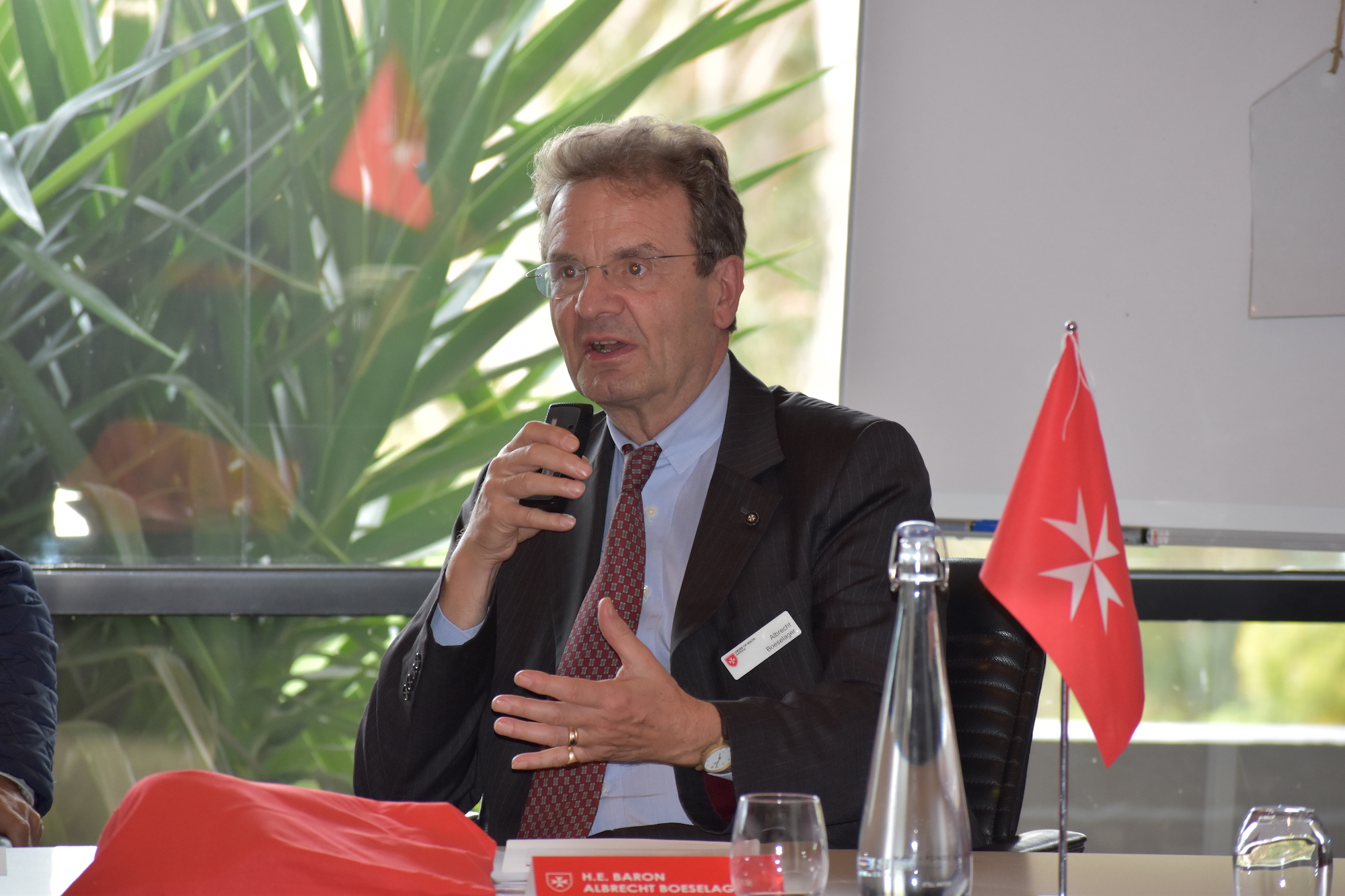In an extensive interview with the Catholic News Agency media outlet, divided into two news- articles published a few days apart, the Grand Chancellor of the Order of Malta illustrated the core priorities of the Order of Malta ahead of the next Council Complete of State tasked with the election of a Grand Master – or Lieutenant of the Grand Master -, and in the wake of the pandemic crisis.
As Albrecht Boeselager explained, speaking remotely with the CNA journalist based in Washington Ed Condon, the Order of Malta is facing an important institutional event with the upcoming Council Complete of State. The Grand Chancellor explained that on 7 and 8 November representatives of the Order will gather in Rome for the election of the Grand Master, or the Lieutenant of the Grand Master – who would stay in power for one year – while the reform process of the Constitution and Code initiated in 2017 is underway. As Boeselager further noted, the Order’s current constitution dates to 1961 before Vatical Council II. The revision made in 1997 did not touch the First Class, therefore, Boeselager said: “All the new elements which came in canon law regarding religious life [since the council] have not yet made it into the constitution of the Order”, adding that: “The reform foresees changes to the Professed too, a request demanded by the Pope”.
The Grand Chancellor illustrated also some other important parts of the reform process such as the abolishment of the nobiliary requirement for the Grand Master which would allow for a wider candidacy among members of the first class. “There is a great consensus that the requirement of nobility for the Grand Master – and in part also for other offices – should be abolished,” conceded Boeselager, noting that this reflects the Order’s capacity to adapt with the changing times. “How the Order deals with the nobility in its history shows how we adapt in steps, not in revolution,” he added.
With regard to the worldwide health emergency, he then explained that the Order of Malta is scaling up its response to the crisis generated by the Covid-19 pandemic. He said that most of the Order of Malta’s entities are supporting national health authorities in the management of hospitalized patients, transportation to and from hospitals, and in test administration and helplines, along with the support given to the homeless, the marginalized, and the assistance provided in many countries to migrants and refugees In Africa and Asia many other projects have been converted into health, sanitation, and virus prevention schemes to mitigate the spread of Covid-19.
“We had to change many of our projects,” Boeselager said. “Even if Africa is not so much affected by the incidence of the illness, the precautionary measures [taken by local governments] are quite similar. In many countries, we have a great challenge to get food to children who would normally have one or two meals a day in schools, which are now closed. These were the only substantial meals for many, many of those children.”
The Grand Chancellor expressed then his concern for the volatile situation in the Middle East: “We have huge activities in Lebanon, Iraq, and some in Syria. The Lebanese association is probably the only organization with good contacts with all the eighteen other confessions in the country. Here we run nine clinics, some of them as formal joint ventures with Sunnis, Shi’ites, and the Druze”. Boeselager emphasized the great asset constituted by being an independent and apolitical actor in the humanitarian field which allows the Order of Malta to enter hostile territories and to be accepted by local populations: “People in armed conflict have a sixth sense,” he said. “They know somebody is there only to help, or whether there is a hidden other agenda”.










